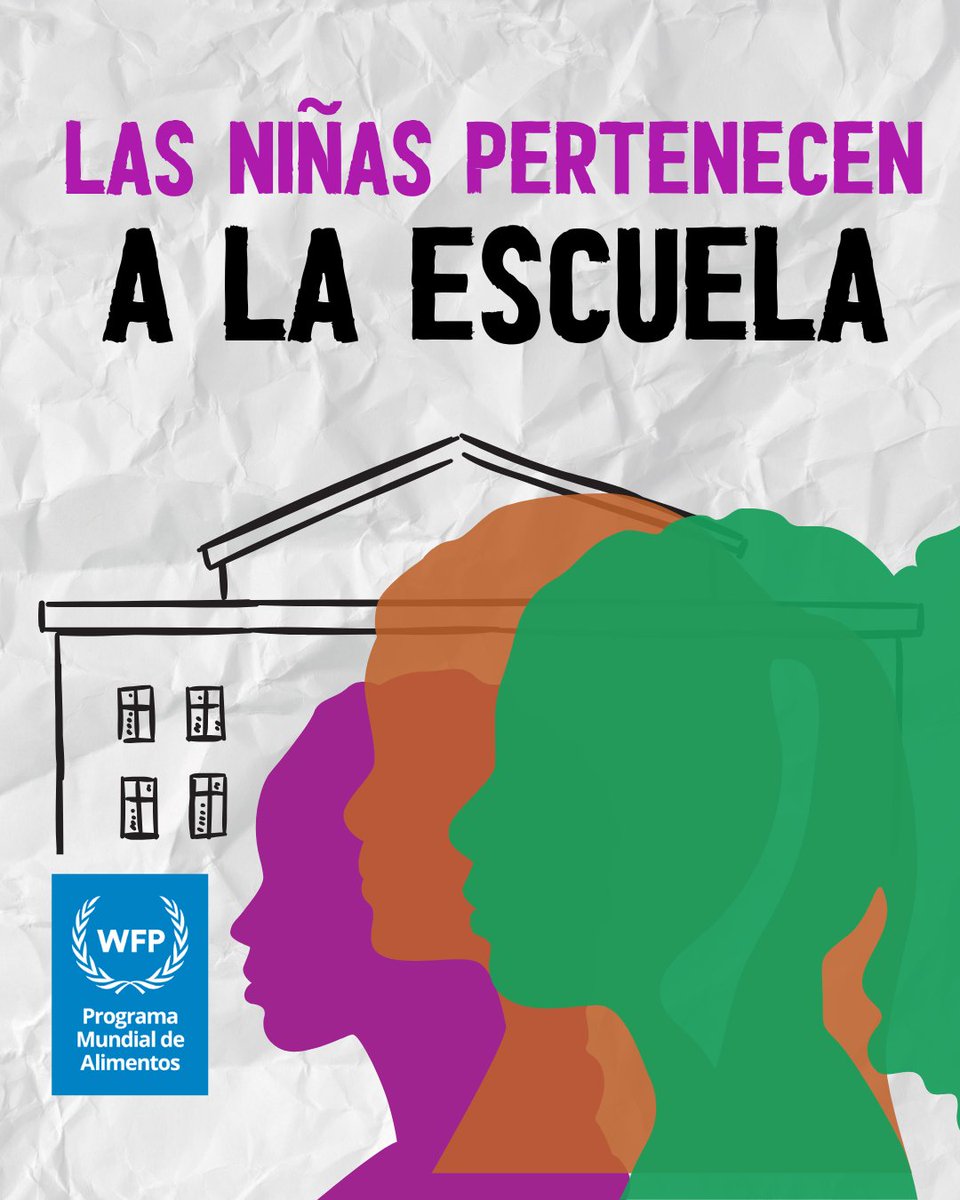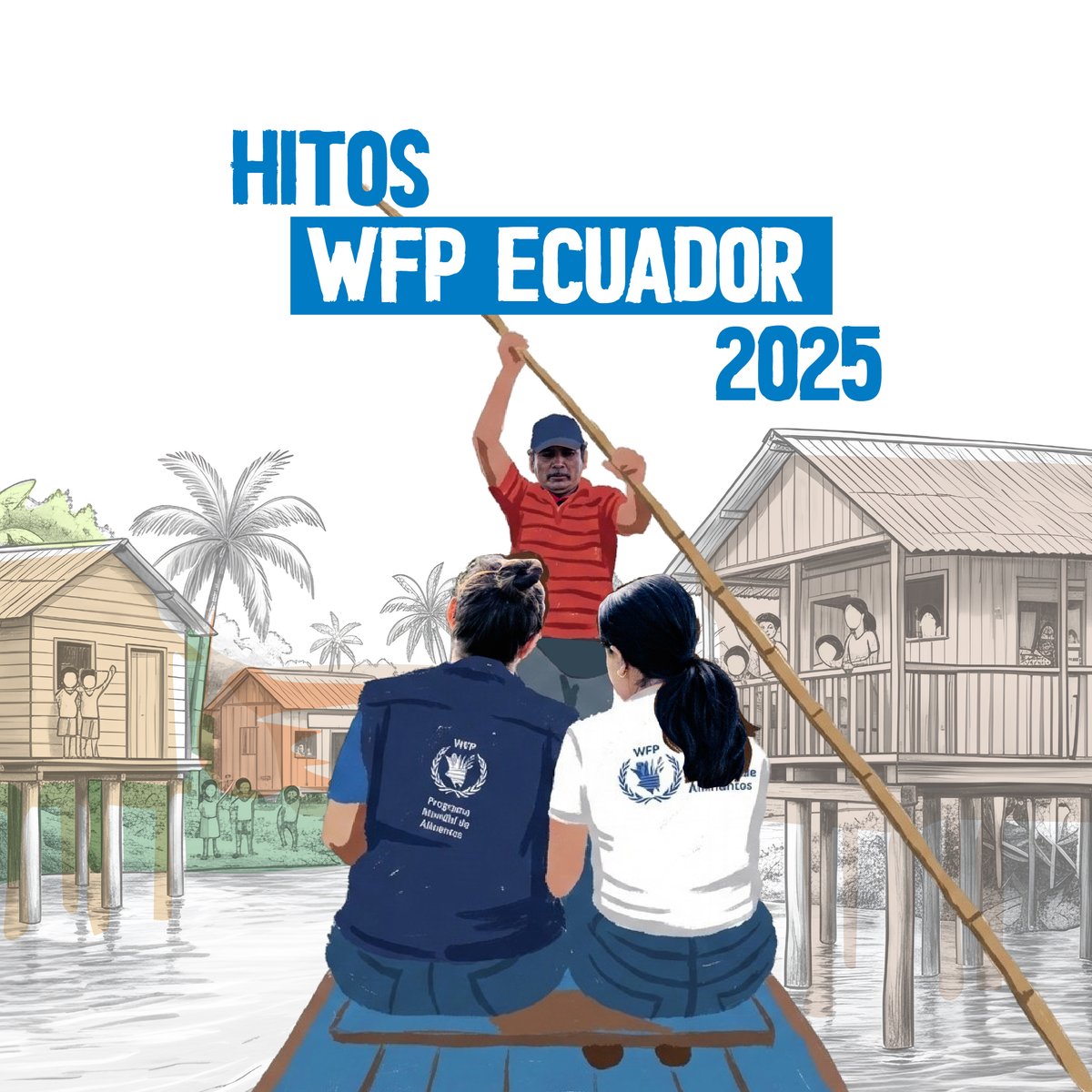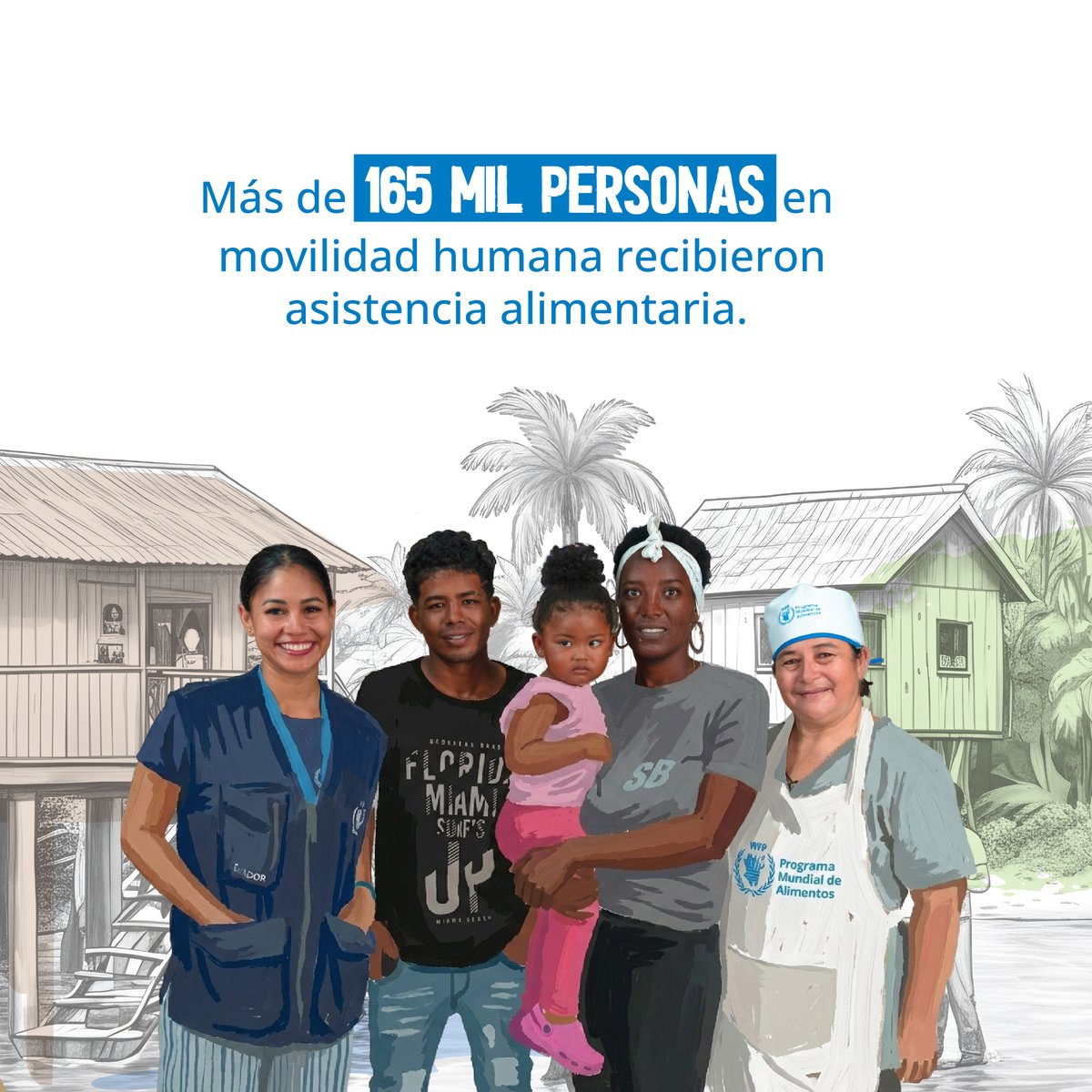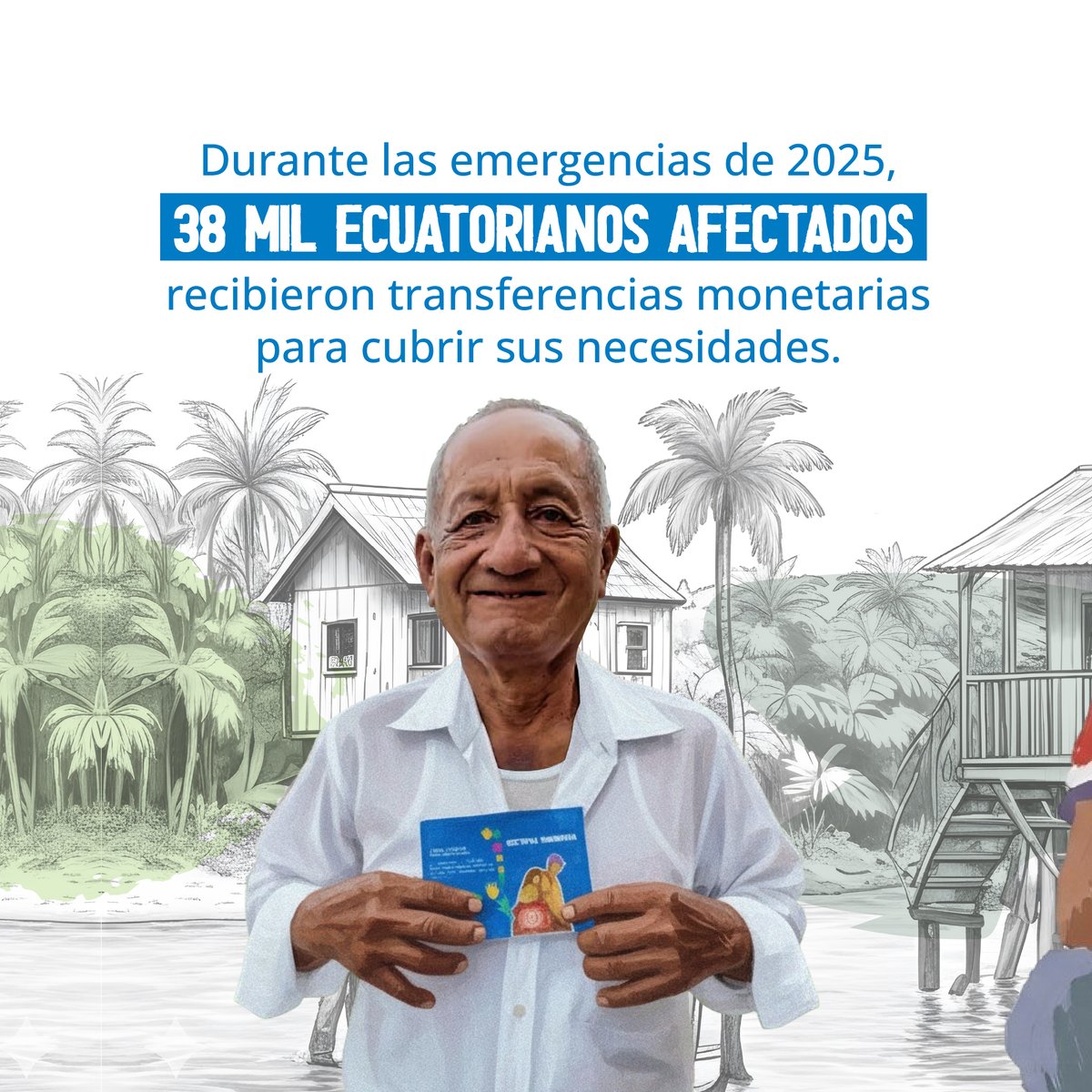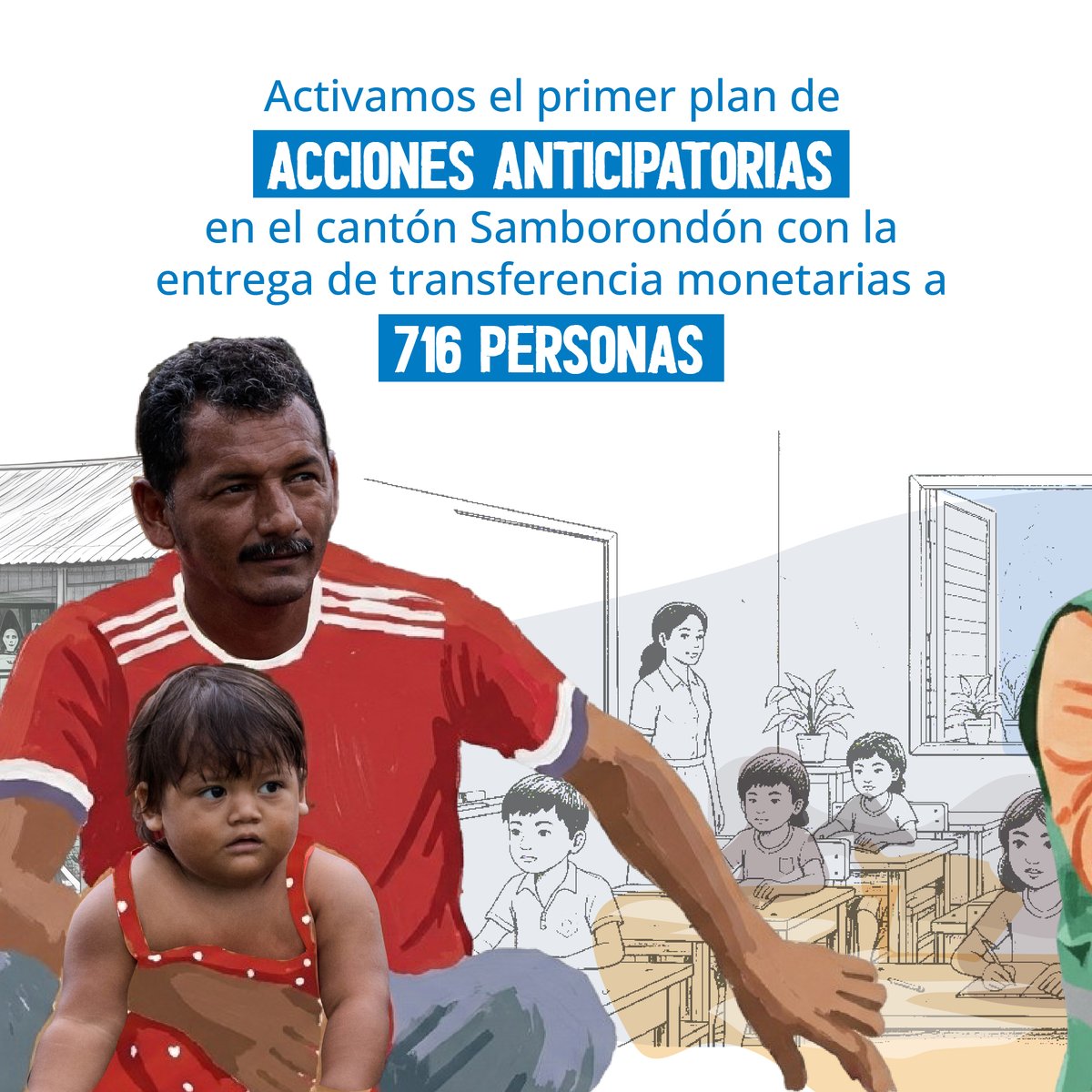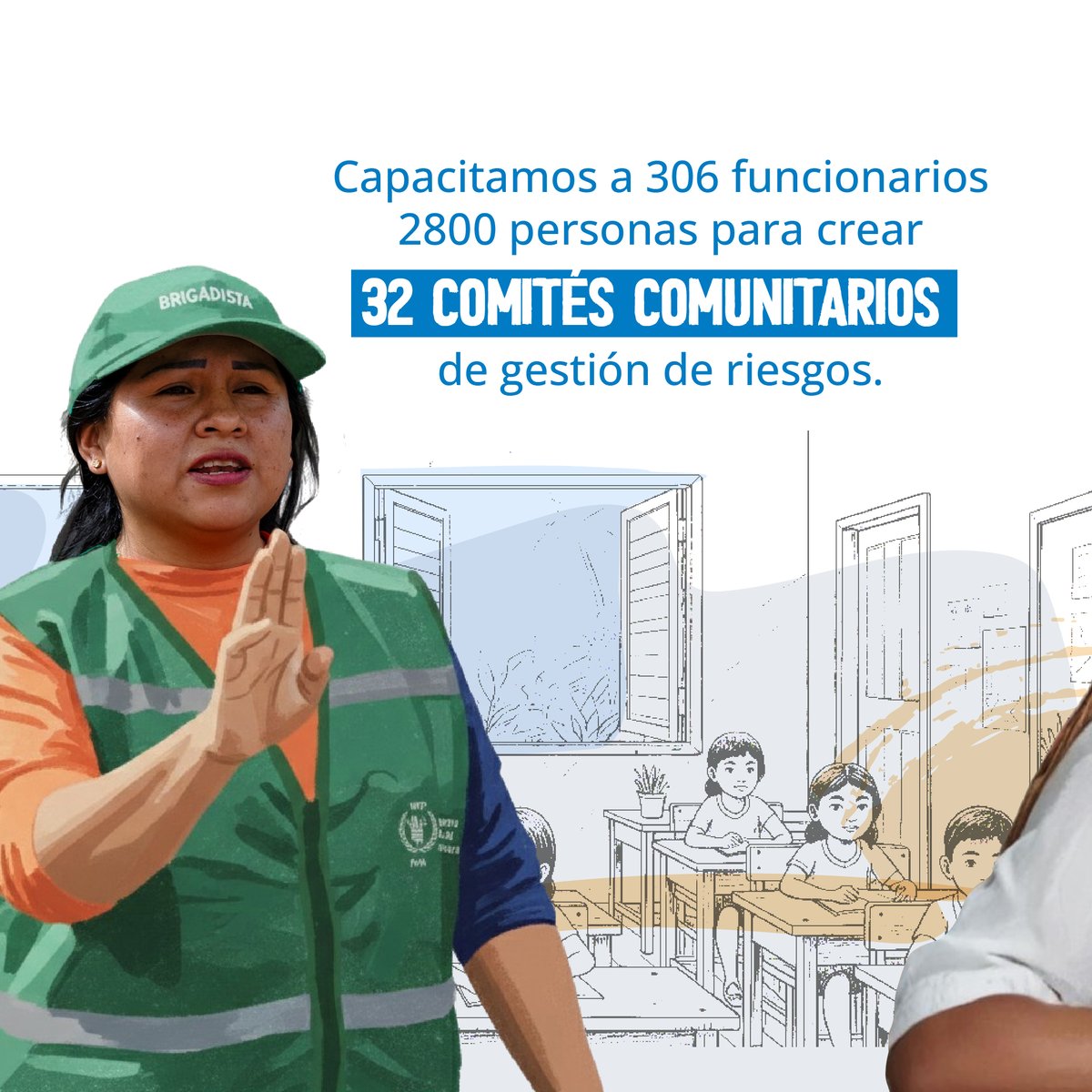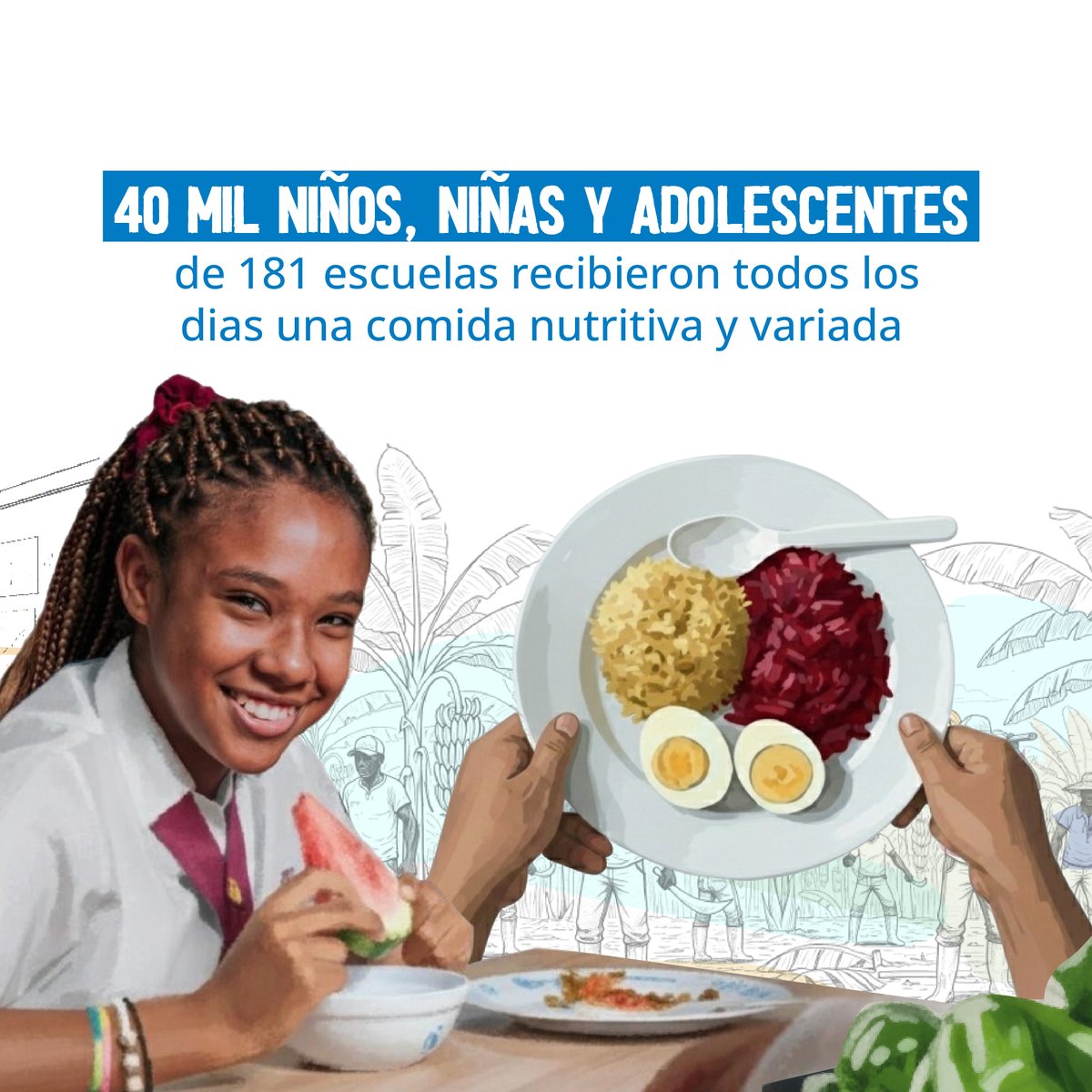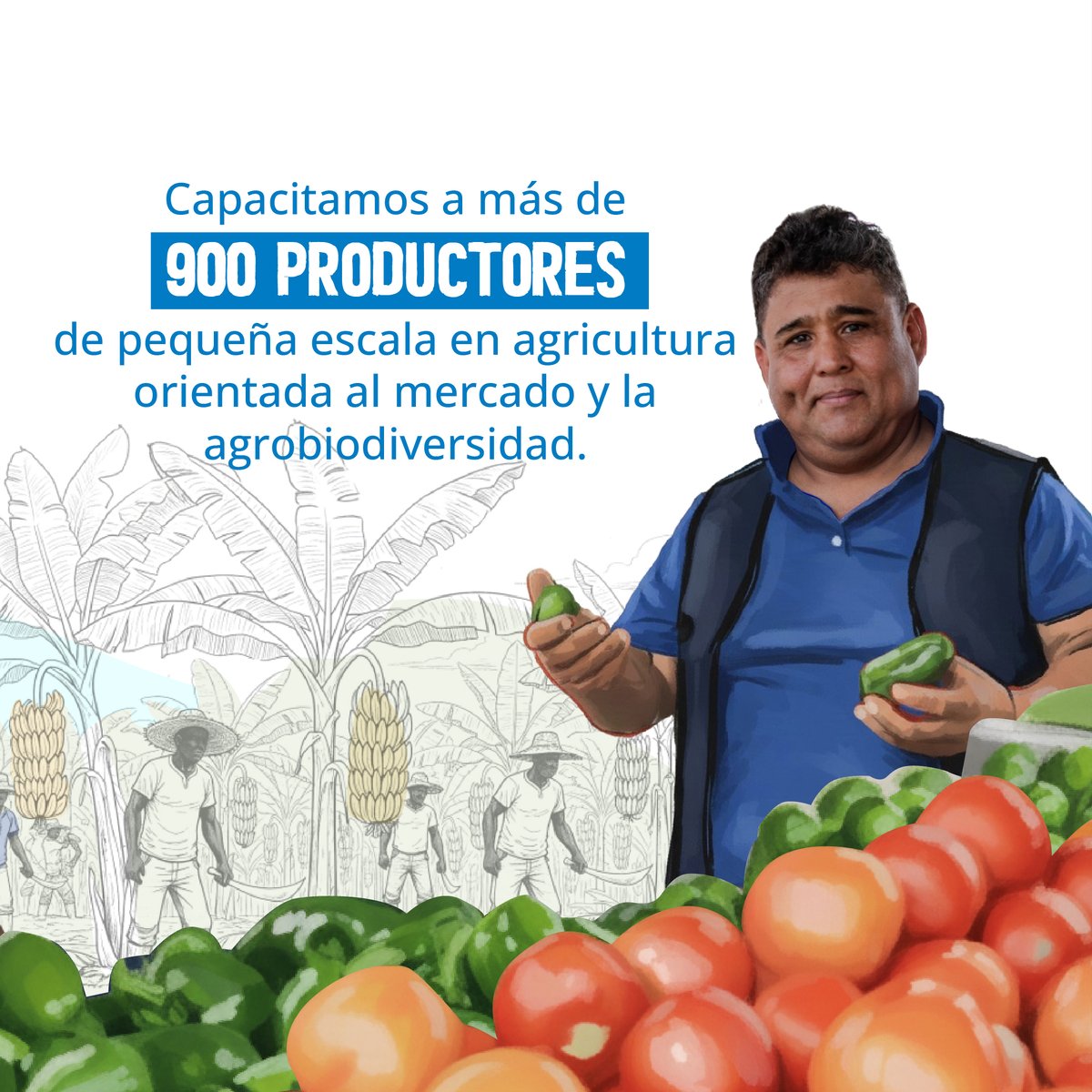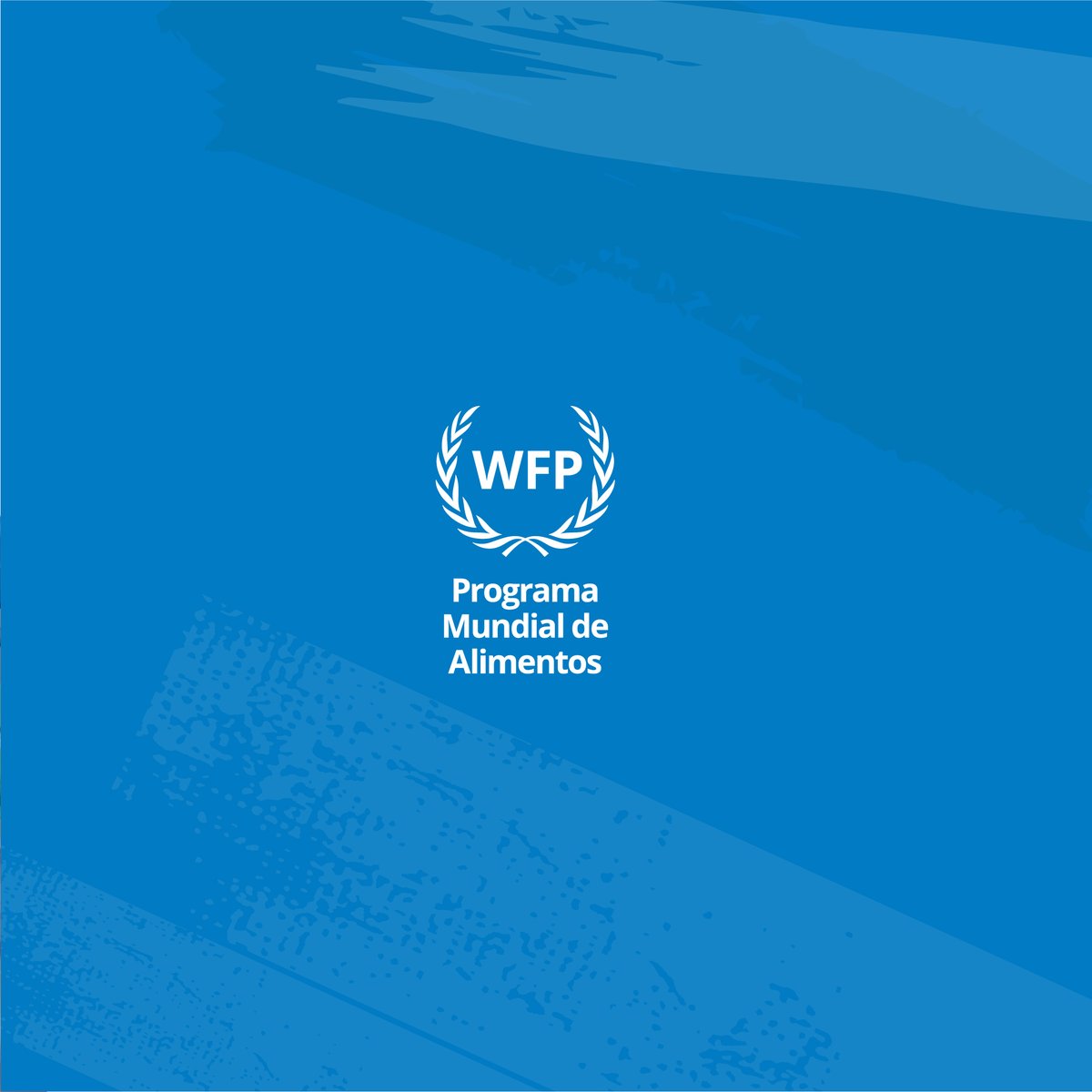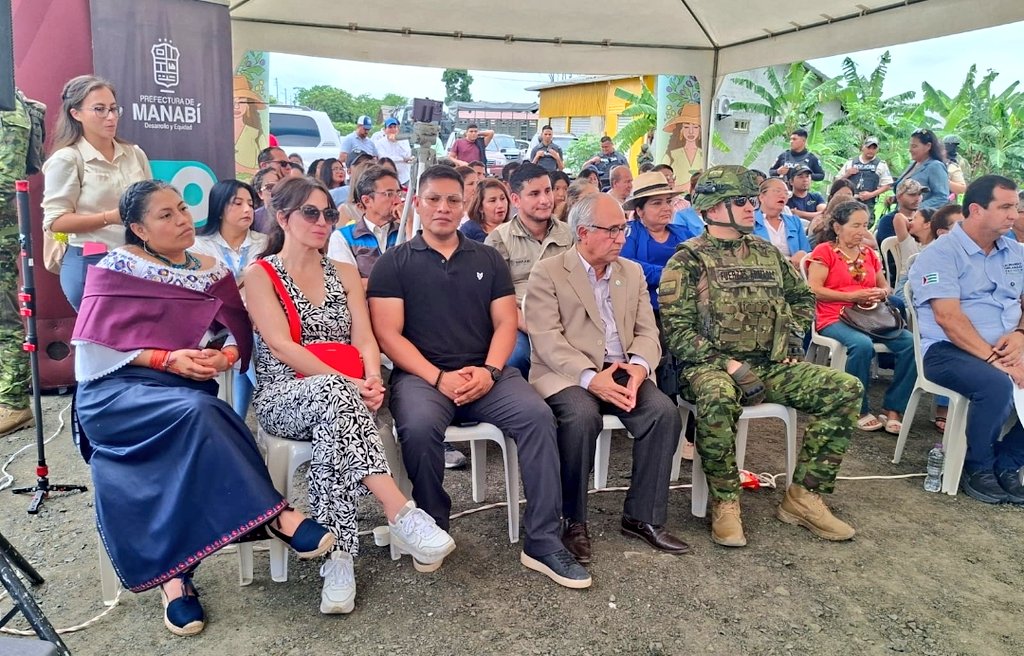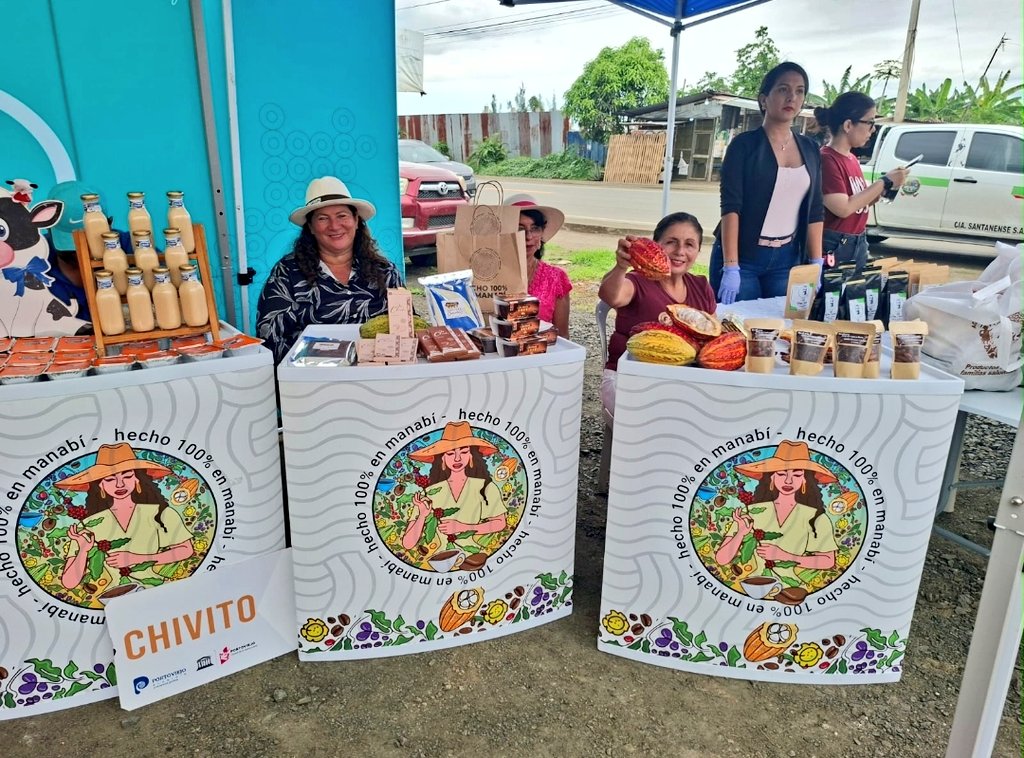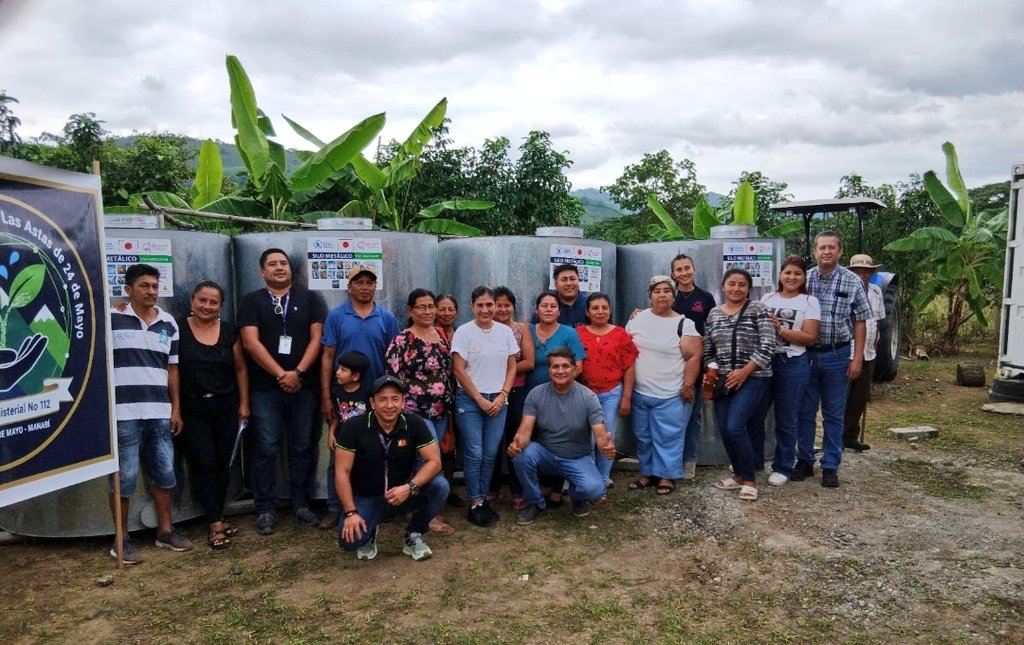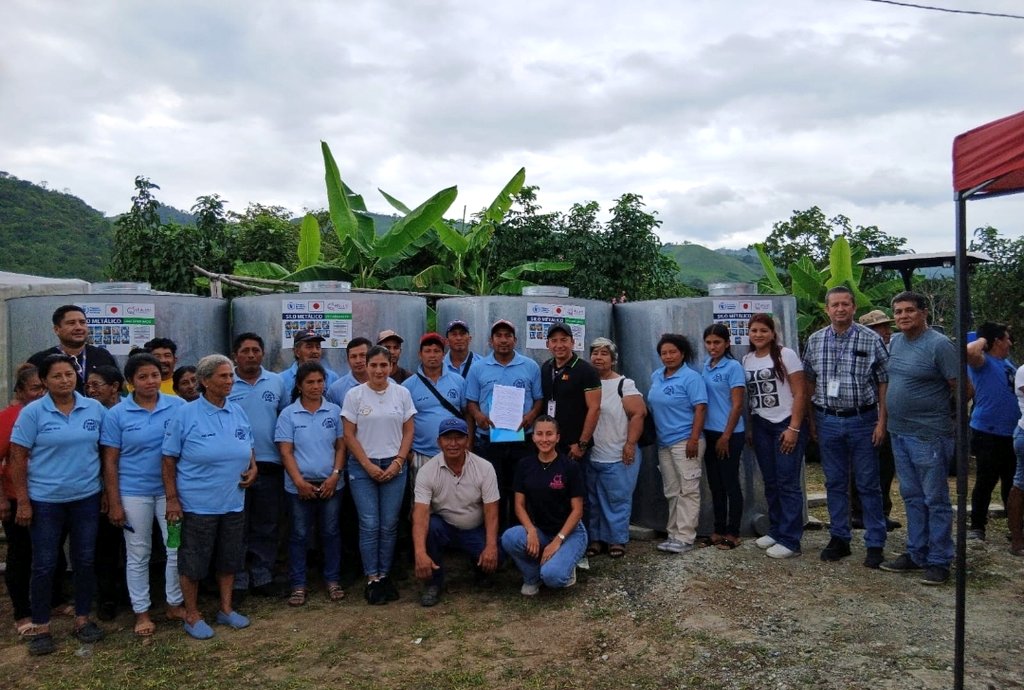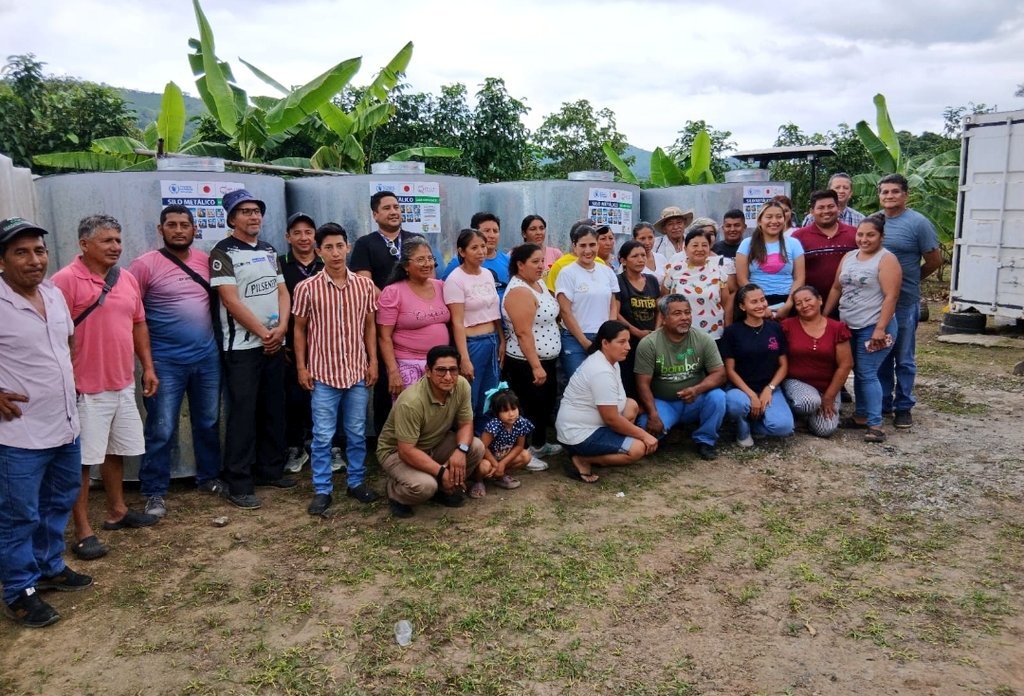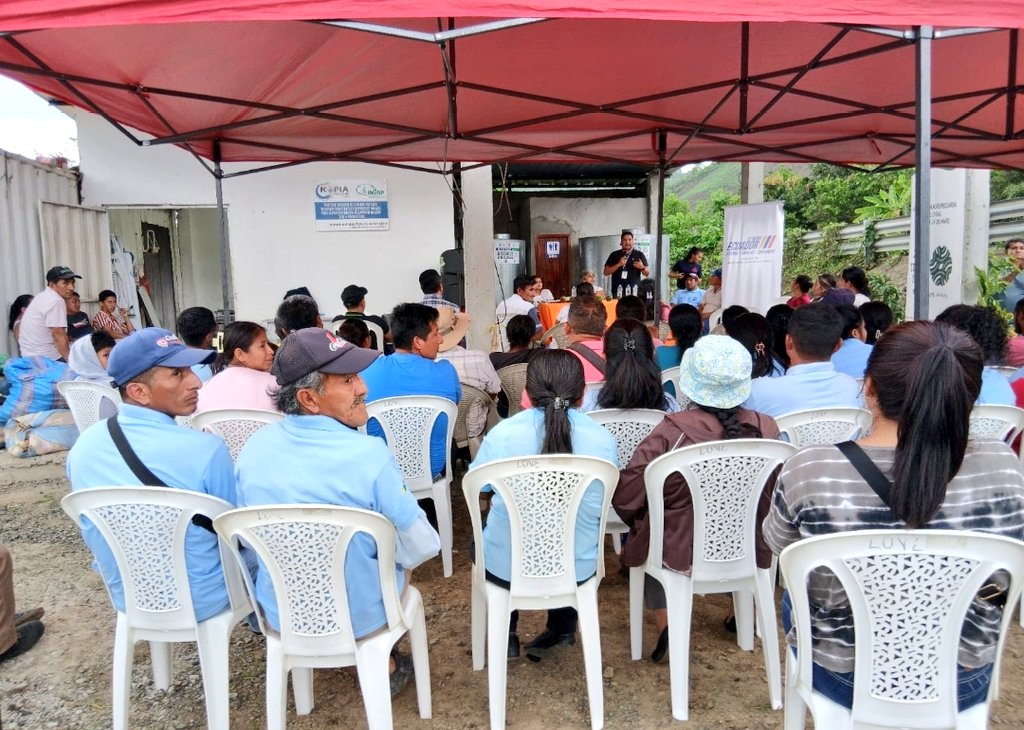DONATE NOW
¡We nurturing bright futures!
¡Thank you for your donation!
You will receive a confirmation email to your registered email address.
You will receive a confirmation email to your registered email address.
Did you know that in Ecuador?
%
of women
are engaged in local rural
agriculture
million
people suffer from food
insecurity
%
of children
under 5 years old suffer from
chronic child malnutrition
What does the World Food Programme do in Ecuador?
Food assistance and nutrition
Ending malnutrition
Adaptation to climate change and sustainable food systems
Capacity building
Emergency preparedness
Service Provision
WFP plays a key role in providing vital food assistance to approximately 300,644 refugees, migrants and severely food insecure individuals in Ecuador. Cash transfers from border areas to urban centres and remote regions with high rates of malnutrition and poverty are used to reach people in vulnerable situations.
In addition, WFP implements communication strategies to improve knowledge about food security and nutrition. Priority is given to pregnant and lactating women, as well as children under two years of age, in an approach aimed at complementing local social protection systems.
In addition, WFP implements communication strategies to improve knowledge about food security and nutrition. Priority is given to pregnant and lactating women, as well as children under two years of age, in an approach aimed at complementing local social protection systems.
WFP works closely with the Ecuadorian government to combat malnutrition by adopting a nutrition-sensitive social protection approach to policies and programmes. To support these actions, WFP conducts research, generates evidence and implements innovative initiatives, such as decentralised school feeding models. These measures actively involve smallholder farmers in the production of fresh and healthy food, with the aim of preventing and reducing chronic undernutrition in children.
In addition, WFP promotes edu-communication activities to promote healthy eating habits, taking into account gender and nutrition aspects. It also ensures that communities in vulnerable situations have access to the knowledge and resources needed to improve their nutritional status.
In addition, WFP promotes edu-communication activities to promote healthy eating habits, taking into account gender and nutrition aspects. It also ensures that communities in vulnerable situations have access to the knowledge and resources needed to improve their nutritional status.
WFP is actively working with the government to develop a sustainable and healthy food system, while strengthening resilience to the impacts of climate change. In this regard, WFP is implementing innovative initiatives, such as rice-duck cultivation and the use of community and ecosystem-based adaptation measures, which are considered nature-based solutions. These transformative approaches also take into account gender and nutrition aspects, with the aim of strengthening the livelihoods of communities and family farmers.
WFP is committed to supporting national and local institutions in the fight against food insecurity, malnutrition and emergencies. This involves strengthening social protection systems through promoting collaboration and knowledge sharing, as well as disseminating research and promoting South-South cooperation to find effective solutions.
In addition, through supply chain operations, the WFP implements activities such as capacity needs mapping, preparedness workshops and simulation exercises, with the objective of strengthening logistics capacity. These actions identify technical gaps and the logistics group develops mitigation measures, finding sustainable solutions to improve the logistics capacities of national actors.
In addition, through supply chain operations, the WFP implements activities such as capacity needs mapping, preparedness workshops and simulation exercises, with the objective of strengthening logistics capacity. These actions identify technical gaps and the logistics group develops mitigation measures, finding sustainable solutions to improve the logistics capacities of national actors.
WFP plays a key role in supporting emergency preparedness in Ecuador. Drawing on its experience, partnerships and evidence-based forecasting, WFP works to improve the capacity of institutions and communities to respond to emergencies and minimise their impact on people in vulnerable situations.
Coordination between public entities and local communities is actively promoted with the aim of establishing social protection mechanisms that are sensitive to the impacts of crises. In addition, WFP Ecuador builds on lessons learned from the COVID-19 response and strengthens logistical coordination at national, regional and local levels through the National Logistics Group. These actions are aligned with the Institutional Capacity Building initiative.
Coordination between public entities and local communities is actively promoted with the aim of establishing social protection mechanisms that are sensitive to the impacts of crises. In addition, WFP Ecuador builds on lessons learned from the COVID-19 response and strengthens logistical coordination at national, regional and local levels through the National Logistics Group. These actions are aligned with the Institutional Capacity Building initiative.
WFP Ecuador deploys efforts to boost supply chain operations, identifying areas of improvement for both governments and humanitarian partners. Through services such as procurement, logistics, cash-based transfers, engineering and administrative support, WFP facilitates partners to focus on strategic activities, while ensuring transparent and efficient results.
In addition, WFP works to strengthen partners' logistics coordination, operational processes and emergency preparedness to optimise supply chains and improve overall efficiency. These actions contribute to creating sustainable solutions to address food insecurity and malnutrition in Ecuador.
In addition, WFP works to strengthen partners' logistics coordination, operational processes and emergency preparedness to optimise supply chains and improve overall efficiency. These actions contribute to creating sustainable solutions to address food insecurity and malnutrition in Ecuador.
Food assistance and nutrition
WFP plays a key role in providing vital food assistance to approximately 300,644 refugees, migrants and severely food insecure individuals in Ecuador. Cash transfers from border areas to urban centres and remote regions with high rates of malnutrition and poverty are used to reach people in vulnerable situations.
In addition, WFP implements communication strategies to improve knowledge about food security and nutrition. Priority is given to pregnant and lactating women, as well as children under two years of age, in an approach aimed at complementing local social protection systems.
In addition, WFP implements communication strategies to improve knowledge about food security and nutrition. Priority is given to pregnant and lactating women, as well as children under two years of age, in an approach aimed at complementing local social protection systems.
Ending malnutrition
WFP works closely with the Ecuadorian government to combat malnutrition by adopting a nutrition-sensitive social protection approach to policies and programmes. To support these actions, WFP conducts research, generates evidence and implements innovative initiatives, such as decentralised school feeding models. These measures actively involve smallholder farmers in the production of fresh and healthy food, with the aim of preventing and reducing chronic undernutrition in children.
In addition, WFP promotes edu-communication activities to promote healthy eating habits, taking into account gender and nutrition aspects. It also ensures that communities in vulnerable situations have access to the knowledge and resources needed to improve their nutritional status.
In addition, WFP promotes edu-communication activities to promote healthy eating habits, taking into account gender and nutrition aspects. It also ensures that communities in vulnerable situations have access to the knowledge and resources needed to improve their nutritional status.
Adaptation to climate change and sustainable food systems
WFP is actively working with the government to develop a sustainable and healthy food system, while strengthening resilience to the impacts of climate change. In this regard, WFP is implementing innovative initiatives, such as rice-duck cultivation and the use of community and ecosystem-based adaptation measures, which are considered nature-based solutions. These transformative approaches also take into account gender and nutrition aspects, with the aim of strengthening the livelihoods of communities and family farmers.
Capacity building
WFP is committed to supporting national and local institutions in the fight against food insecurity, malnutrition and emergencies. This involves strengthening social protection systems through promoting collaboration and knowledge sharing, as well as disseminating research and promoting South-South cooperation to find effective solutions.
In addition, through supply chain operations, the WFP implements activities such as capacity needs mapping, preparedness workshops and simulation exercises, with the objective of strengthening logistics capacity. These actions identify technical gaps and the logistics group develops mitigation measures, finding sustainable solutions to improve the logistics capacities of national actors.
In addition, through supply chain operations, the WFP implements activities such as capacity needs mapping, preparedness workshops and simulation exercises, with the objective of strengthening logistics capacity. These actions identify technical gaps and the logistics group develops mitigation measures, finding sustainable solutions to improve the logistics capacities of national actors.
Emergency preparedness
WFP plays a key role in supporting emergency preparedness in Ecuador. Drawing on its experience, partnerships and evidence-based forecasting, WFP works to improve the capacity of institutions and communities to respond to emergencies and minimise their impact on people in vulnerable situations.
Coordination between public entities and local communities is actively promoted with the aim of establishing social protection mechanisms that are sensitive to the impacts of crises. In addition, WFP Ecuador builds on lessons learned from the COVID-19 response and strengthens logistical coordination at national, regional and local levels through the National Logistics Group. These actions are aligned with the Institutional Capacity Building initiative.
Coordination between public entities and local communities is actively promoted with the aim of establishing social protection mechanisms that are sensitive to the impacts of crises. In addition, WFP Ecuador builds on lessons learned from the COVID-19 response and strengthens logistical coordination at national, regional and local levels through the National Logistics Group. These actions are aligned with the Institutional Capacity Building initiative.
Service Provision
WFP Ecuador deploys efforts to boost supply chain operations, identifying areas of improvement for both governments and humanitarian partners. Through services such as procurement, logistics, cash-based transfers, engineering and administrative support, WFP facilitates partners to focus on strategic activities, while ensuring transparent and efficient results.
In addition, WFP works to strengthen partners’ logistics coordination, operational processes and emergency preparedness to optimise supply chains and improve overall efficiency. These actions contribute to creating sustainable solutions to address food insecurity and malnutrition in Ecuador.
In addition, WFP works to strengthen partners’ logistics coordination, operational processes and emergency preparedness to optimise supply chains and improve overall efficiency. These actions contribute to creating sustainable solutions to address food insecurity and malnutrition in Ecuador.
All your donations help to Save lives during emergencies Nurturing bright futures
Where do we work?
WFP Ecuador is active in 23 provinces and 170 cantons of the country

Latest xeets (tweets)
Frequently asked questions
To what causes does my donation go?
When you donate to the World Food Programme, you help save and change lives during emergencies, and provide hot meals to children in rural schools in the country.
It is safe to donate from this platform?
The World Food Programme’s payment platform allows you to make your donation securely. If you have any doubts about the Privacy Policy and Terms and Conditions, you can consult them in the footer.
When I donate monthly, how often am I debited and for how long?
Your first recurring donation will be debited on the day you complete the process in the payment platform. This date will be registered by default as the debit date of each month. Your recurring donation will remain until you wish to cancel it. To do so, you can contact us at ecuador.donantes@wfp.org.
I made my donation, but I haven't received the confirmation email
In case you have made your donation on the payment platform, but have not received the confirmation email, please contact us at ecuador.donantes@wfp.org and we will help you to verify the information.
Who can I contact if I have difficulties with my donation?
In case you have any problems with your donation on the payment platform, please contact us at ecuador.donantes@wfp.org.
WFP Ecuador is an organization funded 100% by voluntary donations. For every dollar received, 88 cents go to vulnerable populations. Currently, 6 cents are used for the organization’s operation and 6 cents are used to administer WFP Ecuador and its programmatic activities

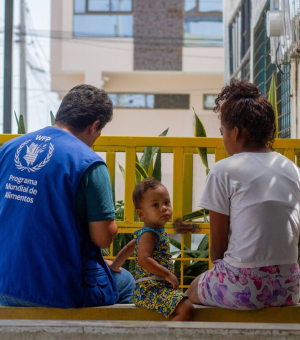
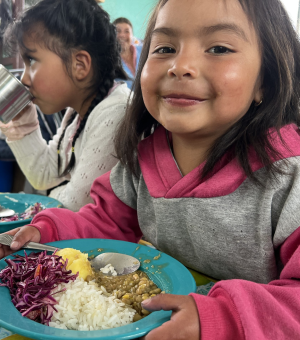
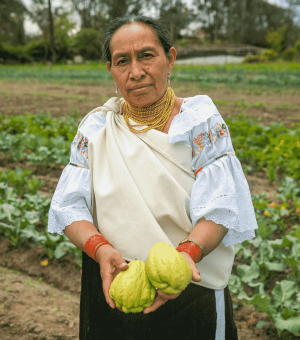





![Image for the Tweet beginning: [MANTA] El viceministro de Gestión](https://pbs.twimg.com/media/HA_3rL2XsAAkF7T.jpg)
![Image for the Tweet beginning: [MANTA] El viceministro de Gestión](https://pbs.twimg.com/media/HA_3rL4XoAA_UAu.jpg)
![Image for the Tweet beginning: [MANTA] El viceministro de Gestión](https://pbs.twimg.com/media/HA_3rMTagAADrVE.jpg)
![Image for the Tweet beginning: [MANTA] El viceministro de Gestión](https://pbs.twimg.com/media/HA_3rMRbAAAVh7H.jpg)
